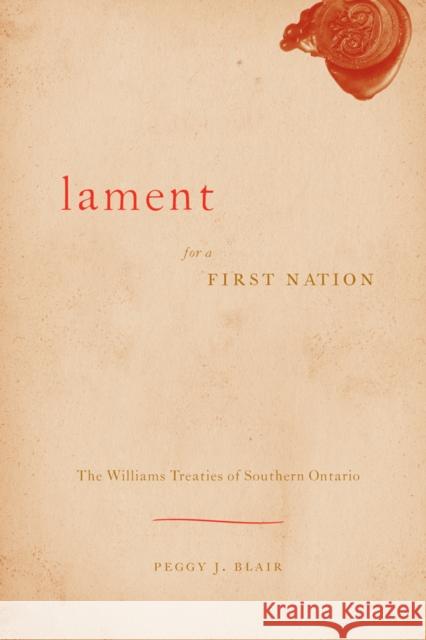Lament for a First Nation: The Williams Treaties of Southern Ontario » książka
Lament for a First Nation: The Williams Treaties of Southern Ontario
ISBN-13: 9780774815123 / Angielski / Twarda / 2008 / 364 str.
Lament for a First Nation: The Williams Treaties of Southern Ontario
ISBN-13: 9780774815123 / Angielski / Twarda / 2008 / 364 str.
(netto: 161,93 VAT: 5%)
Najniższa cena z 30 dni: 168,98
ok. 30 dni roboczych
Dostawa w 2026 r.
Darmowa dostawa!
In a 1994 decision known as Howard, the Supreme Court of Canada held that the Aboriginal signatories to the 1923 Williams Treaties had knowingly given up not only their title to off-reserve lands but also their treaty rights to hunt and fish for food. No other First Nations in Canada have ever been found to have willingly surrendered similar rights.Peggy J. Blair gives the Howard decision considerable context. She examines federal and provincial bickering over "special rights" for Aboriginal peoples and notes how Crown policies toward Indian rights changed as settlement pressures increased. Blair argues that the Canadian courts caused a serious injustice by applying erroneous cultural assumptions in their interpretation of the evidence. In particular, they confused provincial government policy, which has historically favoured public over special rights, with the understanding of the parties at the time.Blair demonstrates that when American courts applied the same legal principles as their Canadian counterparts to a case involving similar facts, they reached the opposite conclusion. Lament for a First Nation convincingly demonstrates that what the Canadian courts considered to be strong and conclusive proof of surrender was in fact based on almost no evidence at all.Lament for a First Nation will appeal to scholars and students in legal, historical, and Native studies.











